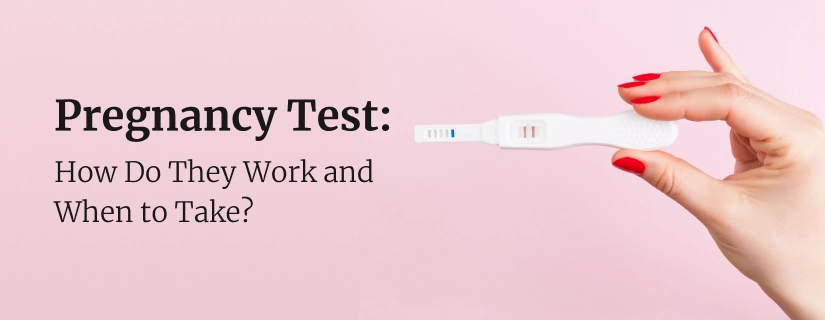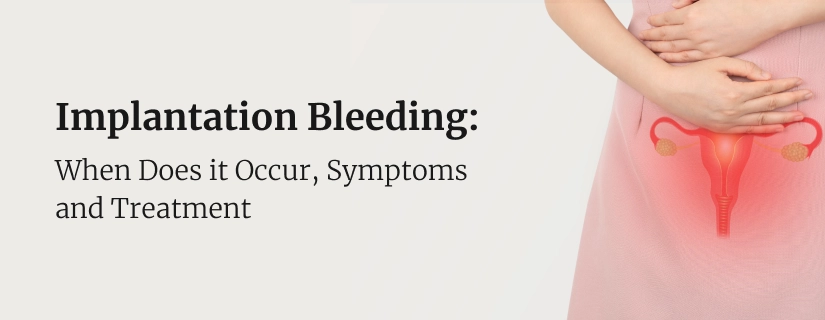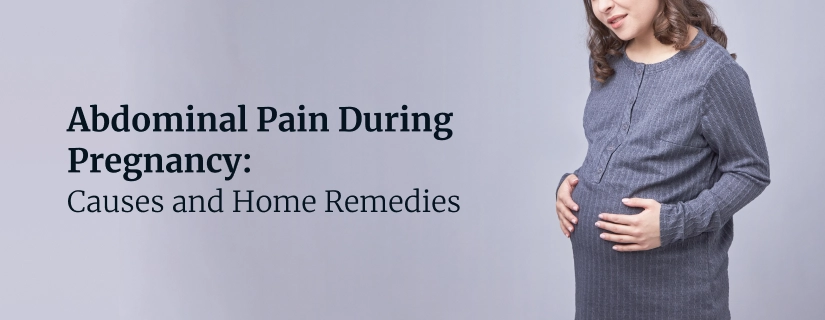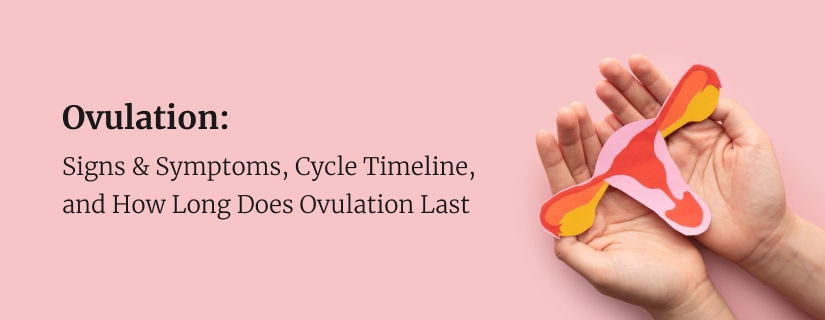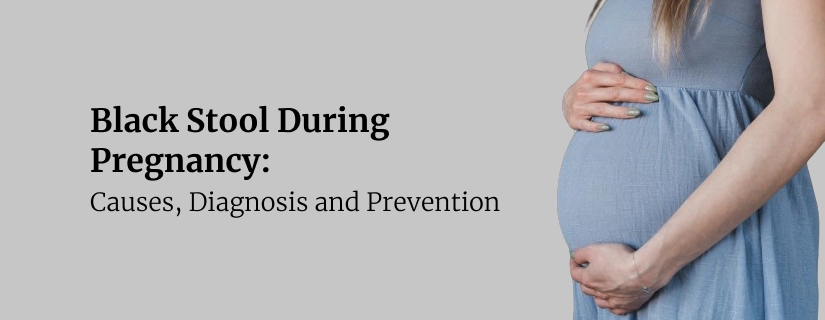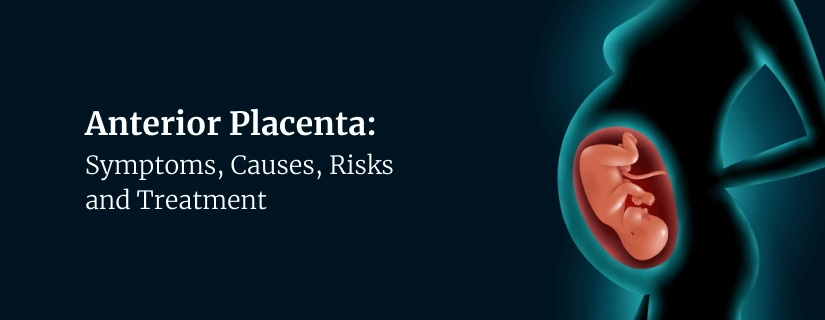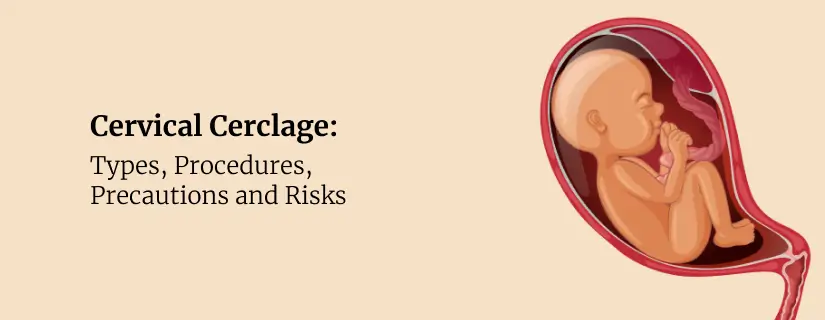-
Doctors
-
Specialities & Treatments
Centre of Excellence
Specialties
Treatments and Procedures
Hospitals & Directions HyderabadCARE Hospitals, Banjara Hills CARE Outpatient Centre, Banjara Hills CARE Hospitals, HITEC City CARE Hospitals, Nampally Gurunanak CARE Hospitals, Musheerabad CARE Hospitals Outpatient Centre, HITEC City CARE Hospitals, Malakpet
HyderabadCARE Hospitals, Banjara Hills CARE Outpatient Centre, Banjara Hills CARE Hospitals, HITEC City CARE Hospitals, Nampally Gurunanak CARE Hospitals, Musheerabad CARE Hospitals Outpatient Centre, HITEC City CARE Hospitals, Malakpet Raipur
Raipur
 Bhubaneswar
Bhubaneswar Visakhapatnam
Visakhapatnam
 Nagpur
Nagpur
 Indore
Indore
 Chh. Sambhajinagar
Chh. SambhajinagarClinics & Medical Centers
Book an AppointmentContact Us
Online Lab Reports
Book an Appointment
Consult Super-Specialist Doctors at CARE Hospitals
Travelling During Pregnancy: Dos and Don'ts
Updated on 25 October 2023
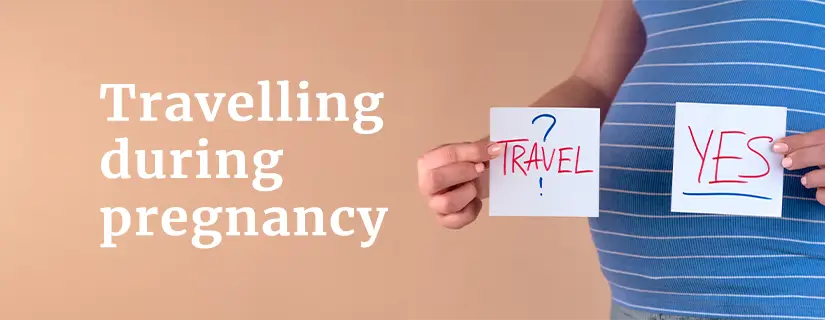
Travel by air, sea, road, or rail including international travel is possible in pregnancy. However, if a woman is planning to travel, she should seek medical advice. Pregnant women may not be able to travel if they experience any pregnancy-related complications and at the end of pregnancy. It is recommended that a medical examination be conducted prior to travel to ensure that there is no cause for concern and that the healthcare professional authorizes the woman to travel.
Is Travelling Safe in Pregnancy?
Traveling while pregnant is completely safe unless the healthcare professional advises otherwise. Try to avoid long flights since sitting for extended periods of time might be uncomfortable. For domestic travel, women are generally not permitted to fly after 36 weeks of pregnancy, and for international travel, the age of consent is between 28 and 35 weeks of pregnancy. The choice of whether or not to travel and the distance to travel, at any point in pregnancy, should be mutually agreed upon between the woman and her healthcare professional.
When is the Best Time to Travel During Pregnancy?
Mid-pregnancy (weeks 14 to 28) is the ideal time to travel when the risk of miscarriage is low. Travel during the second trimester is the safest for pregnancy, with the lowest risk of preterm labour. During this time, energy returns, morning sickness improves or disappears, and the woman is able to move around more freely. After the 28th week, it may become difficult to move or sit for extended periods of time.
All in all, to answer the question - “Which months are safe to travel during pregnancy?” is 4th, 5th, 6th, and 7th months are the most appropriate, having a lower risk of miscarriage.
High-Risk Pregnancies and Travel
If a woman has a history of preterm labour, a threatened abortion or a medical condition that renders her high-risk, her physician may not recommend travel. Long-distance travel carries a small risk of deep vein thrombosis (DVT), and formation of blood clots. Hence, drink plenty of water in such cases.
It is advised against travelling for pregnant women who are having difficulties during pregnancy. Some difficulties may include:
- Cervical issues, including "incompetent cervix"
- Past or present pre-eclampsia - a dangerous disease that can occasionally arise during pregnancy.
- Vaginal bleeding
- Multiple pregnancies
- Current or previous high blood pressure
- An ectopic pregnancy, in which the pregnancy occurs outside the womb.
- Preceding to early labour.
- Prior miscarriage
- Previous or current placental anomalies
Do's and Don'ts of Travel During Pregnancy
There are certain basic guidelines for pregnant women travelling during their pregnancies, regardless of the mode of transportation used or the location of the destination.
- Doctor’s Consultation - Before leaving on vacation, make an appointment to see the doctor to obtain medical consent.
- Insurance Plans - It is advisable to maintain the insurance and medical records current before travelling. To be on the safe side, bring these along.
- Hospitals and Doctors - To make sure to have access to assistance if required, research the availability of hospitals and maternity services in the region where you will be travelling or staying. Obtain the phone number of the local doctor before visiting a new location to be safe.
- Medical Records - Bring a copy of all pregnancy paperwork and any pertinent ultrasounds on the trip.
- Medication - Prenatal vitamins and any other prescribed prescriptions should be kept in a handbag. It is usually a good idea to bring some over-the-counter first-aid medication that may be needed on the trip, in addition to the prescription meds. Treatment for indigestion, stomach sickness, low-grade fevers, headaches, etc., may fall under this category. Always get medical advice before purchasing these, and have a copy of the relevant prescription.
- Healthy Snacks - Unexpected cravings or hunger pangs might occur during pregnancy. As a result, it makes sense to bring along some wholesome snacks that are suitable for travel.
- Stay Hydrated - It is recommended to carry a bottle of water at all times and to consume water on a regular basis in order to maintain adequate hydration.
- Stay Away From Risky Activities - Avoid any activities that require quick, jerky movements, abrupt changes in direction, or a chance of falling or tripping over a bump or your back. Saunas, excessive sunbathing, horseback riding, challenging hikes, amusement park rides, and skiing are a few examples.
- Doctor’s Detail - Keep your physicians' phone numbers on your phone and make sure your travelling partner has access to them as well.
- Journey Duration - It is recommended to minimise the duration of the journey during pregnancy. To achieve this, it is recommended to reduce the journey time by approximately five or six hours. Use rest stops when driving to take little strolls and stretch to keep the blood flowing.
- Mode of Transport - Trains are a great way to travel since they provide more space for movement and walking. It is also considered safe to fly when pregnant. A seat beside the aisle is preferred since it will make it easier to get up quickly to use the toilet or to stretch your legs and back. When travelling in a car while pregnant, one should keep in mind that the shortest route is generally the best.
What signs should you be aware of while traveling during pregnancy?
While traveling during pregnancy, it's important to be aware of certain signs that may indicate potential complications or issues. These signs include:
- Persistent vomiting or diarrhea
- Vaginal bleeding
- Passing tissue or clots
- Contractions
- Vision changes
- Stomach pain or cramps
- Dehydration
- Water breaking
- Severe headache
What safety measures are important during pregnancy while using various modes of transportation?
Safety during pregnancy is crucial when traveling in different modes of transportation. Here are specific measures to consider for each:
Car Travel:
- Use Seat Belt Properly: Position the lap belt under the belly, across your hips, and the shoulder belt between the breasts and to the side of the belly.
- Take Breaks: Plan frequent stops to stretch your legs and reduce discomfort.
- Adjust Seat Position: Sit comfortably with enough space between your belly and the steering wheel or dashboard.
- Avoid Sudden Movements: Drive cautiously, and avoid sudden braking or acceleration.
- Stay Hydrated: Drink plenty of water to stay hydrated during the journey.
- Avoid Long Trips: Limit long-distance travel, especially in the later stages of pregnancy.
Ferry Travel:
- Wear a Life Jacket: If required or recommended, wear a life jacket that fits comfortably over your pregnancy belly.
- Choose Safe Seating: Opt for seating areas where you feel stable and comfortable.
- Be Cautious with Movement: Use handrails and take care when moving around the ferry.
- Follow Crew Instructions: Pay attention to safety instructions provided by the ferry crew.
- Avoid Crowded Areas: Minimize exposure to crowded or congested areas on board.
Cruise Travel:
- Consult with Healthcare Provider: Seek advice from your doctor before planning a cruise trip.
- Choose the Right Cabin: Opt for a cabin that is well-ventilated and has easy access to amenities.
- Stay Hydrated and Rested: Drink plenty of water and get adequate rest during the cruise.
- Avoid Activities with Risk: Refrain from participating in activities that pose a risk of falling or injury.
- Monitor for Signs of Discomfort: Be mindful of any signs of discomfort or complications and seek medical attention if needed.
- Follow Cruise Line Guidelines: Adhere to safety guidelines provided by the cruise line, including emergency procedures.
General Tips:
- Pack Essentials: Carry necessary medications, snacks, and comfortable clothing.
- Inform Travel Companions: Ensure your travel companions are aware of your pregnancy and any special needs.
- Stay Informed: Be aware of local medical facilities and emergency contacts at your destination.
- Listen to Your Body: Pay attention to your body's signals and take breaks as needed.
Zika virus and How to avoid it in pregnancy
Zika virus is a concern for pregnant women because it can cause birth defects in babies, such as microcephaly. To avoid the Zika virus during pregnancy, follow these specific precautions:
- Avoid Traveling to Zika-Infected Areas: Check travel advisories and avoid destinations with active Zika virus transmission, especially if pregnant.
- Use Mosquito Repellent: Apply EPA-approved insect repellents containing DEET, picaridin, IR3535, or oil of lemon eucalyptus to exposed skin and clothing.
- Wear Protective Clothing: Cover up with long-sleeved shirts, long pants, socks, and shoes to minimize exposed skin.
- Stay Indoors: Stay in places with air conditioning or screened windows and doors to keep mosquitoes out.
- Eliminate Standing Water: Remove or empty outdoor containers that can collect water, such as flower pots, buckets, or birdbaths, to reduce mosquito breeding sites.
- Use Bed Nets: Sleep under mosquito nets, especially if staying in accommodations without adequate protection from mosquitoes.
- Get Tested: If you have traveled to an area with Zika or have symptoms, seek medical advice and get tested.
Conclusion
Travelling while pregnant is quite possible as to-be mothers have all the right to enjoy themselves. Listening to and attending to the demands of your body will help you enjoy the trips and build unique memories with your loved ones. However, it is always advisable to keep in touch with the concerned doctor and discuss before making any travel plans.
FAQs
1. Is air travel safe during pregnancy?
Ans: Air travel is generally safe during pregnancy, especially for women with healthy pregnancies and no specific complications. However, it's recommended to consult with your healthcare provider before making any travel plans, particularly if you have a high-risk pregnancy or are close to your due date.
What are the safety measures to be taken while traveling during pregnancy?
- Consult your healthcare provider before making travel plans, especially for long trips or during the third trimester.
- Stay hydrated and take frequent bathroom breaks.
- Wear comfortable clothing and footwear.
- Move around and stretch your legs during the flight to improve circulation.
- Follow airline guidelines regarding travel restrictions for pregnant women.
2. Can traveling during pregnancy cause deep vein thrombosis?
Ans: Pregnant women are at a slightly higher risk of developing deep vein thrombosis (DVT) during long periods of immobility, such as during air travel. To reduce this risk, it's essential to stay hydrated, move around regularly, and perform leg exercises during the flight.
3. Is radiation exposure a threat while flying during pregnancy?
Ans: The radiation exposure during commercial air travel is generally low and considered safe for pregnant women and their unborn babies. The dose of radiation exposure from air travel is typically below the recommended limits for pregnant women. However, it's advisable to limit unnecessary exposure to radiation sources.
4. Does traveling during pregnancy cause shortness of breath?
Ans: Some pregnant women may experience shortness of breath during travel, especially if they are farther along in their pregnancy. This can be due to the growing uterus putting pressure on the diaphragm and lungs. It's important to take it easy, rest when needed, and inform flight attendants or travel companions if you experience significant discomfort or difficulty breathing.
To Book an Appointment, call:
ENQUIRY FORM
SELECT CATEGORIES
-
Neurosciences (16)
-
Neurology (37)
-
Neurosurgery (14)
-
Orthopaedics (48)
-
Oncology (33)
-
Obstetrics and gynecology (52)
-
Pulmonology (23)
-
Urology (20)
-
Nephrology (13)
-
Psychiatry (7)
-
Dietetics and Nutrition (111)
-
General Medicine (63)
-
Cardiac Sciences (32)
-
Vascular & Endovascular Surgery and Interventional Radiology (15)
-
Gastroenterology (46)
-
Endocrinology (23)
-
Plastic Surgery (10)
-
Critical Care Medicine (5)
-
COVID-19 (16)
-
Dermatology (16)
-
Emergency Care (1)
-
Ophthalmology (4)
-
Pediatrics (14)
-
Laparoscopic and Bariatric Surgery (8)
-
ENT (15)
-
Kidney Transplant (1)
-
Liver Transplantation and Hepatobiliary Surgery (5)
-
General Surgery (3)
-
Internal Medicine (5)
-
Medicine Information
Is It Safe To Take Antacids During Pregnancy?
Vaginal Bleeding between Periods
YOU MAY ALSO LIKE
RECENT BLOGS
-

Preterm Birth (Premature Birth): Symptoms, Causes, Treatment and Prevention
13 May 2025
Read More
-

Rotablation Angioplasty: Benefits, Treatments, And Recovery Time
9 May 2025
Read More
-

What Is The Difference Between IUI and IVF?
9 May 2025
Read More
-

Venous Malformations: Causes, Symptoms, and Treatment
30 April 2025
Read More
-

Varicose Vein Foam Sclerotherapy: Treatment, Benefits, and Procedure
30 April 2025
Read More
-

Radiofrequency (RF) Ablation Treatment for Varicose Veins: Know More
30 April 2025
Read More
-

Varicose Vein Sclerotherapy: Treatment, Benefits, and Procedure
30 April 2025
Read More
-

Varicose Vein Endovenous Laser Ablation: Procedure, Benefits, Risks
30 April 2025
Read More
Have a Question?
If you cannot find answers to your queries, please fill out the enquiry form or call the number below. We will contact you shortly.






























